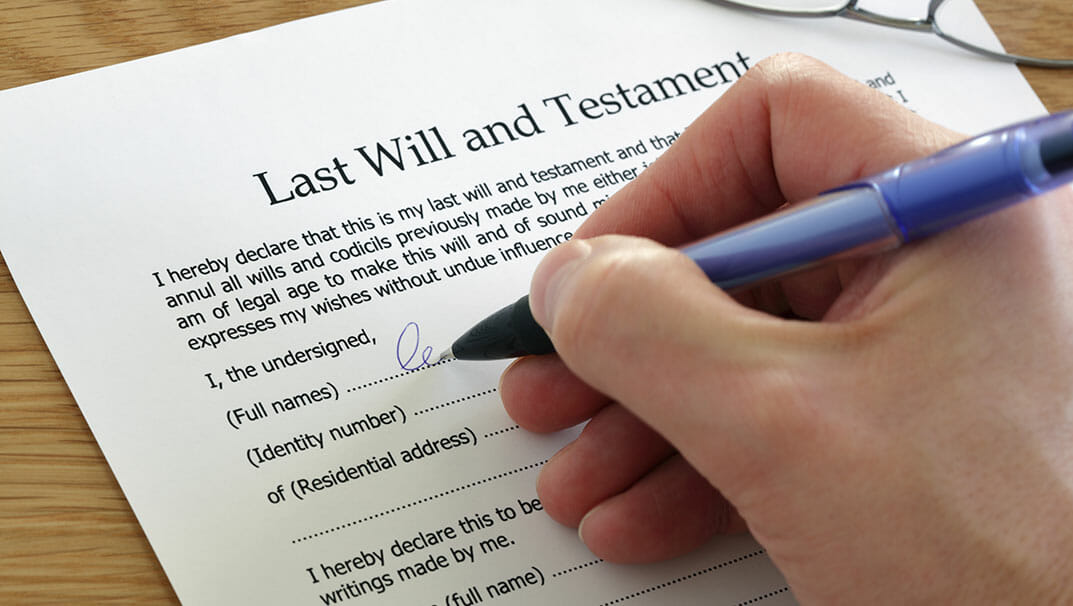Myths Debunked
Bankruptcy is highly complex and isn’t the best choice for everyone. Yet under the right circumstances, filing for bankruptcy can protect you if you’re burdened with overwhelming debt. To make an informed decision, consult a bankruptcy attorney who can review your personal situation and clearly explain your options to you.
Below are clarifications of a few misunderstandings that many commonly hold about the financial fresh start bankruptcy can offer.
I won’t be able to keep my house if I file Chapter 7 bankruptcy.
It’s possible to lose your home. But it happens infrequently and depends largely on your equity (what you owe on your house relative to its worth). If you have more equity, it’s an asset; if less, a debt. In Kentucky, after applying your homestead exemption, if you are current on your house payments and have no excess equity in your home ($23,675 per debtor in equity) you should be able to keep the house despite bankruptcy. If you are behind on your mortgage payments, filing a Chapter 13 bankruptcy may be a better route for you.
I won’t be able to keep my car if I file Chapter 7 bankruptcy.
The same principles apply to your car as to your house. In Kentucky, if you are current on your car payments and have no excess equity in your car ($3,775 per debtor in equity), you should also be able to keep it despite bankruptcy. If you are behind on your car payments and want to keep the car or get it back after repossession (but before a sale), filing a Chapter 13 bankruptcy may be a better choice.
Bankruptcy will ruin my credit forever.
Your credit score and ability to get credit are different concepts. Credit scores are assigned by credit reporting agencies based on voluntary payment history. Obtaining credit is based on the ability to make payments in the future, which actually can be increased by filing bankruptcy. Why? Bankruptcy eliminates many types of debts, which theoretically makes you a better credit risk. While it’s true that for eight to 10 years your credit report will reflect that you filed for bankruptcy, you can begin rebuilding credit as soon as you emerge. Many debtors find that they are offered secured, low-limit credit cards soon after debt discharge. By making regular, timely payments, it doesn’t take long to rebuild your credit and improve your score.
I won’t ever be able to buy a house if I file for bankruptcy.
Buying a house after bankruptcy is not impossible. Depending on a few factors, such as whether you filed for Chapter 7 or Chapter 13, you will have to wait from one to four years before you can get another mortgage loan. If you use that time to keep new debt down, rebuild your credit, and save money, your approval for an FHA loan (insured by the government) will be easier to get than a conventional mortgage loan, though, depending on the lender, the latter is possible.
My spouse also has to file for bankruptcy.
A married person can file for bankruptcy individually, although there are many situations where joint bankruptcy is preferable. To find out more, take a look at our Individual vs. Joint Bankruptcy page.
Bankruptcy will erase all my debts.
Bankruptcy can provide welcome relief for those who struggle under the weight of unpaid bills. But there are certain debts that you cannot discharge, in most circumstances. This includes debt from:
- Spousal support/alimony
- Child support
- Income taxes
- Student loans
- Fines and penalties for violating the law
- Loans owed to pension or retirement plans
- Any debt not listed in the filing papers.
You must be behind (In default) on your debt payments to file bankruptcy.
This is false; there is no requirement that you be delinquent on any payments to file bankruptcy. If you are not able to repay all your debts given your current or anticipated income, bankruptcy is an option that should be explored. Many who file bankruptcy are current with payments. And the simple truth is that by doing so you avoid problems with creditor collection actions leading up to your filing for bankruptcy.
It’s a good idea to go on a spending spree and “max out” my credit cards BEFORE I file for bankruptcy
How would you feel about being charged with bankruptcy fraud? It happens to some folks who intentionally run up debt before filing for bankruptcy. Whether you’ll actually end up in trouble depends on the amount of your “sudden” debt, your explanation, and how soon the charges occurred before your bankruptcy. Your lenders certainly won’t be happy and will likely object, especially if you suddenly owe several credit card lenders. At the very least, the court might listen to them and not allow you relief from these debts. At the worst, the bankruptcy trustee might ask the U.S. Attorney to charge you with bankruptcy fraud.
I make too much money to file for bankruptcy.
It is true that you have to be able to pass a “means test” to qualify for a Chapter 7 bankruptcy if your income is greater than the median income for an equally-sized household. However, the amount of your expenditures plays a key role in whether you are eligible for a discharge. Don’t assume that it’s impossible to file if you have a decent income. Instead, consult with an attorney who may be able to show that your expenses are legitimately overwhelming.
It’s OK for me to repay my relatives and friends prior to filing bankruptcy.
Depending on which bankruptcy chapter is used, doing this within a certain time period prior to filing might expose those friends and relatives to lawsuits by a bankruptcy trustee to recover the money you repaid.
You can only file once for bankruptcy protection.
You can file and get a “discharge” under Chapter 7 once every eight years. As for filing a Chapter 7 after filing and getting a discharge in Chapter 13, you must wait six years, computed from one “date of filing” to another. As for filing a case under Chapter 13 of the Bankruptcy Code, the wait is only four years after a prior discharged Chapter 7, or two years after a prior Chapter 13 discharge. If a prior bankruptcy case was “dismissed” (rather than “discharged”), there is usually no wait time required between bankruptcy filings, unless there is a court order that prevents subsequent filings.
Only deadbeats file for bankruptcy.
Most the people who file bankruptcy petitions are good, honest, and hard-working, just like you. They file as a last resort after months or years of struggling to pay bills. Don’t let this patently false rumor discourage you. If you’re in a corner and there’s no way out, filing bankruptcy is actually one of the most positive and responsible steps you can take to ensure your family’s future happiness and prosperity.
Have More Questions about Bankruptcy?
The Fayette County bankruptcy attorneys at Bunch & Brock can help you evaluate your current financial situation and determine the best course of action for you to consider. It can be confusing to understand the differences between Chapter 7 and Chapter 13 – or to decide whether filing for bankruptcy is the right path to take.If you are burdened with debt, you need the calming presence of a skilled legal team in your corner. With over 35 years’ experience in handling personal bankruptcy cases throughout Kentucky, our Lexington-based lawyers can help you find the right way forward to improved financial stability.
For more information regarding personal bankruptcy or to schedule an appointment, contact us by calling 859-254-5522 or filling out this online form.

Attorney Matthew Bunch
Matt handles complicated bankruptcies and debt restructuring in Chapters 11 and 13 for both individuals and companies. He has also negotiated with multiple creditors on behalf of his clients to avoid bankruptcy. Matt is the firm’s lead litigator and handles contract disputes, certain personal injury claims and general litigation. [ attorney bio ]














